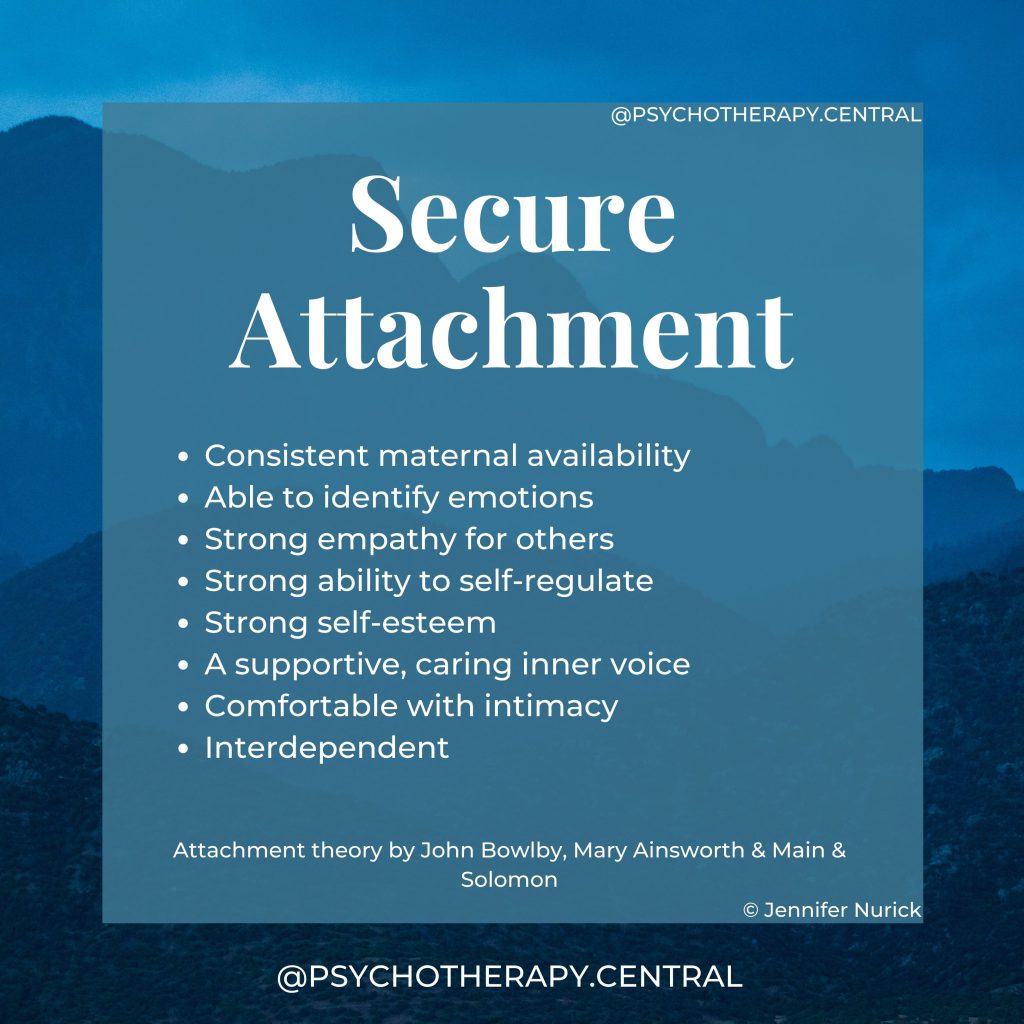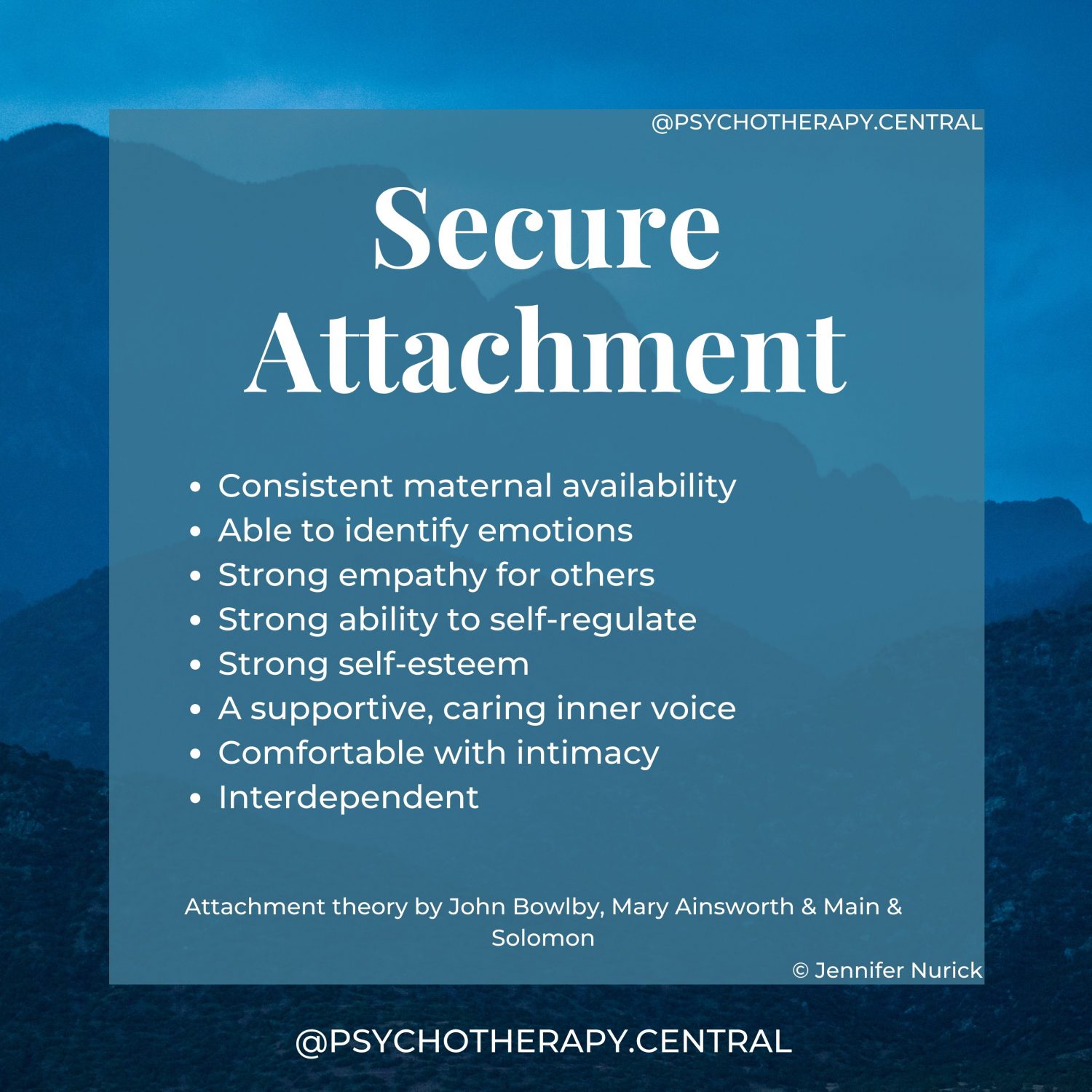When a child is securely attached, the child’s emotions are accurately reflected and validated by the primary caregiver (usually the mother). The mother is loving, supportive, attentive, understanding and able to help regulate the child’s emotions and help the world feel safe. When a securely attached child is separated from her mother, she is distressed and becomes happy when the mother returns.
In securely attached children, the mother is a secure base from which to explore the world. The child will go further and further from the mother with both assessing safety. Over time, the child develops resilience as she makes mistakes and has accidents, knowing that her mother will care for her.
As the child grows with this loving base, the mother’s voice and way of being ‘imprints’ in the child’s psyche so the child can become a functional adult. The inner voice is caring, supportive, encouraging, validating and helpful.
This child grows up to become an adult who can identify their emotions and self-regulate (calm themselves down when stressed).
When adults can do this, they are able to empathise with other people’s feeling and emotions. Empathic ability is one of the contributors to having enduring, healthy relationships. They are also able to soothe others, as they have had it role modelled for them.
Starting life off with a secure attachment to the mother improves your chances of having fulfilling relationships in the future. That is not to say you won’t sometimes struggle with fear of abandonment, emotions, or relationships in general.
Sometimes we can grow up with a secure attachment to the mother but be in a very dysfunctional family system, which still creates interpersonal issues. Attachment theory is just one model to learn more about yourself and others.
If you are in one of the insecurely attached groups, know that we can all learn to become more secure if we choose. It takes a lot of courage, but it can be done!

Attachment theory by John Bowlby, Mary Ainsworth & Main & Solomon
